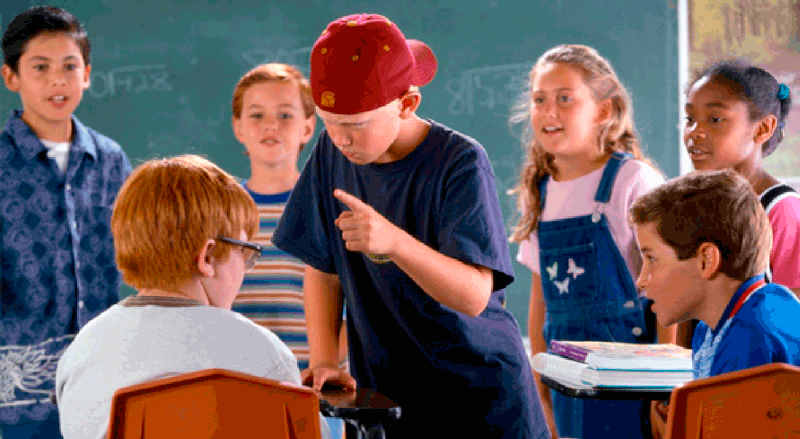Bullying, how to deal with this problem in schools?
Bullying is discrimination made by some citizens against a single person. But it's not a simple thing that can be overcome overnight. Bullying is an evil that is carried over a very long period of life. When someone tells you your hair looks weird, you probably run to the nearest mirror to fix yourself up.
Now imagine two, three, ten people, all day long, talking bad about your hair, about things that it's not your fault for having or often for not having. Yes, that would be completely unbearable, I mean, your high esteem is low, and the evil perpetrators of bullying would be the heroes.
What would you do? Would you kill yourself? Yes, there are children who commit suicide, but not with the idea that their life sucks, but rather that I'm going to die because I'm ugly and everything they say is true.

Bad nicknames
Nicknames such as “well stopper”, “whale”, “four eyes”, stick stick among others and attitudes such as kicks, pushes and hair pulling. “Hard-working” students who generally suffer retaliation from their peers, generally not due to physical but also intellectual characteristics, are typical behaviors of students in the classroom. Age-appropriate games? No. They are aggressive, intentional and repetitive acts, which occur without evident motivation and which characterize the so-called Bullying phenomenon.
Definition of Bullying
With no equivalent in the Portuguese language, Bullying is an English term used to designate the practice of these aggressive acts. The consequences are isolation, reduced academic performance, low self-esteem, depression and negative thoughts of revenge.
Worldwide studies reveal that between 5% and 35% of students are involved in this type of behavior. In Brazil, some studies have shown that these rates reach 49%.
The meeting will address the phenomenon in its various aspects: school, family, social, cultural, ethical-legal and health. The main focus of the event will be debate, with the aim of encouraging professionals to get involved and commit to the issue. “The proposal is not limited to just discussing specific measures, but developing strategic actions that help the school-family partnership to break the Bullying dynamic”, explained Cléo Fante, member of the organizing committee, researcher and author of the book Fenômeno Bullying, from Editora Verus.
With advances in technology, this embarrassment left schools where this practice was commonplace and moved to the internet and gained strength. The new practice was called “CyberBullying” and infiltrated emails, blogs, Orkut, Msn, etc. The aggressor in this case, often hidden behind a nickname, spreads his anger and happiness by sending offensive messages to other people. In many cases, it displays compromising photos, alters victims' profiles and incites third parties to reinforce the attack. The sole purpose is to humiliate the victim and isolate those who are considered weaker or different.
How to deal with Bullying?
“Those who attack want their target to feel as unhappy as they really are. It is likely that the aggressor was also humiliated one day, taking out his own frustration and impotence on the weakest” (Maluh Duprat).
It is not interesting to respond to provocations, as this would increase the aggressor's anger and that is exactly what he wants. “Another important thing is not to keep the offense a secret by intimidating yourself. It can be a good time to deal with your own complexes, to overcome, with the help of your family or superiors at work, a confrontational situation that is greater than your internal resources.”
Bullying is not good, and if you know someone who suffers from it, help them. Because you will benefit from a new friendship or perhaps saving a life.
